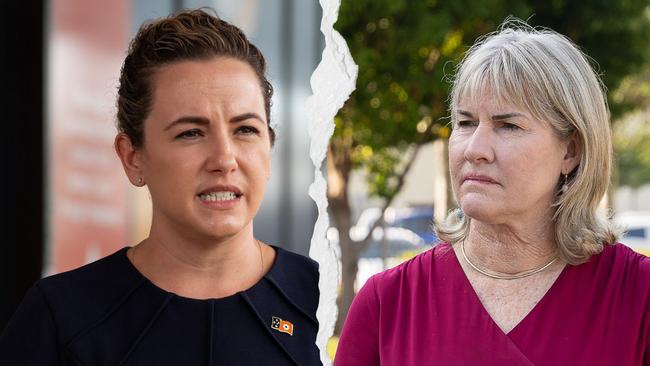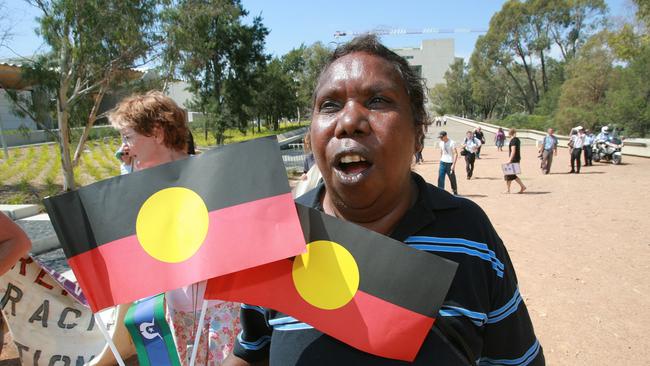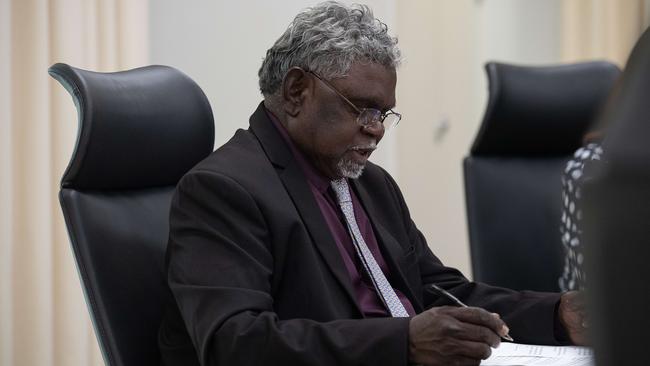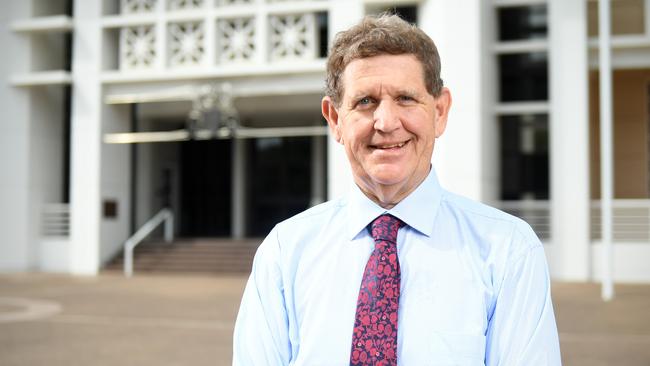Aboriginal Territorians raise alarm over revival of Intervention-era politics five months out from election
Territorians alarmed by the revival of Intervention-Era politics have slammed calls for military and federal police to be rolled out on the streets, punitive income management and leaders who said remote communities had a “culture of not working”.
Indigenous Affairs
Don't miss out on the headlines from Indigenous Affairs. Followed categories will be added to My News.
First Nations leaders have hit back against calls echoing “draconian” and “racist” rhetoric used in the lead up to the 2007 Intervention, after the NT government invokes emergency powers over Alice Springs.
Intervention Rollback Action Group member and Warlpiri Elder Valerie Napaljarri Martin said much like 2007, NT politicians were using her communities “for personal and political gain” by calling for federal interventions, punitive income management and made sweeping generalisations about remote communities.
Following violence in Alice Springs the mayor Matt Paterson called for help from the Australian Federal Police, while Senator Jacinta Price called for Australia “to send in the riot squad, the ADF, whoever it takes, to bring calm to our streets”.
Five months out from the election, Opposition Leader Lia Finocchiaro called for income management measures against parents who did not sent their children to school — an Intervention-era policy — while Chief Minister Eva Lawler blamed the violence on remote Aboriginal communities for having a “culture of not working”.

A 2017 joint report by the University of Sydney and Menzies School of Health Research found that the Intervention resulted in lower Aboriginal birthrates and no improvement to school attendance, while a 2020 Monash report found Aboriginal employment rates went backwards and there was no change to incarceration rates.
Intervention Rollback Action Group member and Arrernte Elder Elaine Kngwarraye Peckham said those calling for a return to “draconian” Intervention-era policies had never lived under that regime imposed on “marginalised and impoverished communities”.

Ms Peckham said the violence seen in Alice Springs now was a direct product of 17 years of failed policies for Central Australia.
“Kids are disenfranchised, they are angry, they are hurt. We have seen our children grow up without the supports that were promised and needed,” Ms Peckham said.
Mulka MLA Yingiya Guyula said First Nations people were feeling “powerless” amid the dog whistle political campaigns.
“I never want to see the damage of the Intervention pushed onto our people again,” Mr Guyula said.
“The problems we are seeing now are directly caused by policies like the Intervention which completely disempowered Elders and leaders and created chaos for our people.”
“The violence that we see today does not come from our culture,” Mr Guyula said.

The Northern Territory Council of Social Services has also come out in opposition to the “so-called solution” of deploying soldiers or federal police against Alice Springs residents.
“It’s a terrible idea and would achieve nothing of substance if the goal is to tackle the town’s complex problems and make people feel safe,” acting chief executive Caitlin Perry said last week.
Former Alice Springs politician Scott McConnell said he was on the street when up to 70 people swarmed the Todd Tavern, forcing staff to barricade themselves inside.
While condemning the “very dangerous” and “frightening” violence, Mr McConnell also warned against repeating past failed policies.

“The real issue here is an absence of hope, it’s an absence of co-operation and collegiality on the ground,” he said.
“I think it’s time for our community to reflect on the fact that maybe we don’t need an intervention of any types from the outside.”
The former Labor turned Independent member for Stuart said the current unrest was a product of a failure of the current government to deliver of education, infrastructure and economic outcomes and engage with remote communities.
“We’ve failed to address those issues and now those communities are in real trouble,” he said.
“If we think we’re seeing this unruly behaviour in town, it’s much worse in remote communities.”
“We’ve allowed the situation to deteriorate”.





